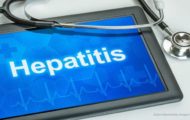E.coli in salads sold at Trader Joe’s, Whole Foods, Walgreens and other stores in Arizona, California, Nevada, Oregon and Washington has sickened 26 people and hospitalized six of them. Symptoms of an E.coli infection can be debilitating, but treating them some drugs can actually make the infection worse, the U.S. Food and Drug Administration (FDA) cautions.
 Symptoms of an E.coli infection include abdominal cramps and diarrhea that is sometimes bloody. Symptoms can also include nausea, vomiting and fever. Symptoms usually develop three to four days after the exposure, but could appear in as short as 1 day or take as long as 10 days. Often, the symptoms begin mildy and worsen or several days.
Symptoms of an E.coli infection include abdominal cramps and diarrhea that is sometimes bloody. Symptoms can also include nausea, vomiting and fever. Symptoms usually develop three to four days after the exposure, but could appear in as short as 1 day or take as long as 10 days. Often, the symptoms begin mildy and worsen or several days.
If you have eaten a recalled salad and have developed these symptoms, see your doctor and mention your exposure. Stay hydrated but not take over-the-counter anti-diarrheal medications or antibiotics until E.coli is ruled out as a source of your illness. “Antibiotics should not be used to treat this infection. There is no evidence that treatment with antibiotics is helpful, and taking antibiotics may increase the risk of HUS. Antidiarrheal agents like Imodium® may also increase that risk,” the FDA states in its advice to consumers.
HUS, or hemolytic uremic syndrome, is a complication of E.coli infections that leads it kidney failure. It most often affects children. Between 5 and 10 percent of those with E.coli infections develop HUS. Treatment includes plasma exchange, blood transfusions and dialysis. HUS usually develops an about seven days after the first symptoms, when the diarrhea is improving.
The FDA is working with the CDC and state health departments on an investigation of the outbreak. A specific ingredient in the salads has not yet been identified.




